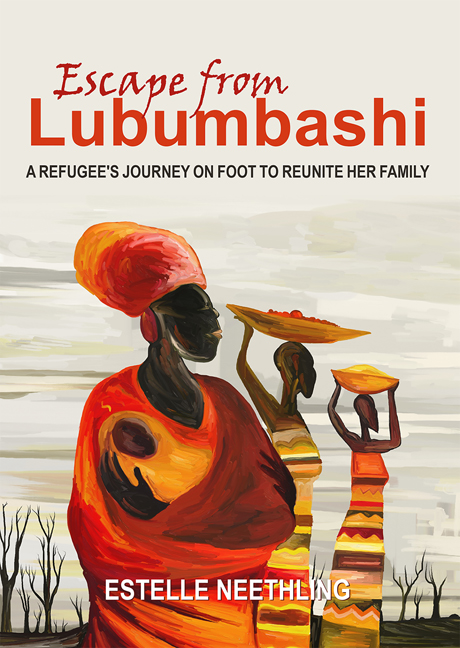How Adolphine's story came to me - Estelle Neethling
Summary
I am Adolphine Misekabu, the daughter of Nkudimba Mpidewu. I am from the Katanga (Shaba) Province in the south-eastern part of what was then known as Zaire.
I had to flee my homeland in 1996 when I was twenty two, during the reign of Mobutu Sese Seko, just before the start of the civil war in Zaire, now the Democratic Republic of the Congo. The first time I saw Adolphine Misekabu she was sitting on the floor of a makeshift classroom amongst a group of small children at Bonne Esperance refugee shelter for women and children in Philippi on the outskirts of Cape Town. I was the national tracing coordinator of the international Red Cross, based at The South African Red Cross Society (SARCS), at the time and I was visiting Bonne Esperance with other members of refugee service provider organisations. I was also handing out Red Cross T-shirts to the children that day. Adolphine later told me her son Ilunga also received a T-shirt.
It was during the winter of 2004 – halfway through my ten year tenure at the Red Cross – when NGOs were inundated with the desperate needs of thousands of asylum seekers, mainly from the Democratic Republic of the Congo (DRC), Rwanda and Burundi, most of them clamouring for recognised refugee status in South Africa under extremely difficult circumstances. We were paying a rather rushed visit to the facility, but I recall resisting a strong urge to break away from the group to talk to the noble-looking woman, probably I thought in her early thirties. In that brief encounter, as she looked up at the visitors earnestly but fleetingly, I sensed a poignant mix of strength and vulnerability. I learnt later that Adolphine was a refugee from the DRC, a trained teacher, which explained her obvious ease in interacting with the diverse group of children, clearly vulnerable due to their parents or caregivers’ refugee plight.
The children also interested me very much because of my commitment to the Restoring of Family Links Programme of the international Red Cross. The conflict in many parts of Africa had caused thousands of people to be displaced and families to be separated in the process and part of my job as tracing coordinator was to try and reunite family members.
- Type
- Chapter
- Information
- Escape from LubumbashiA Refugee's Journey on Foot to Reunite her Family, pp. xiv - xviiPublisher: University of South AfricaPrint publication year: 2021



